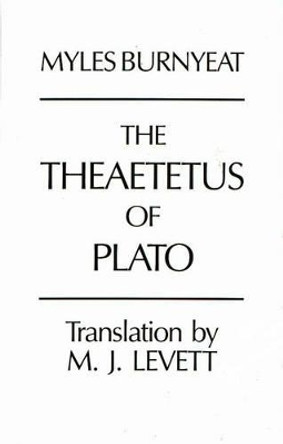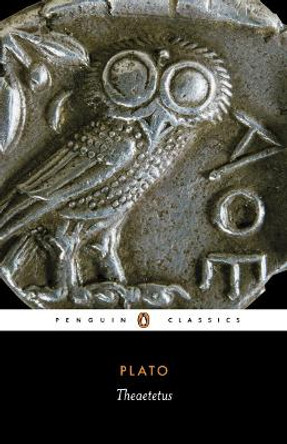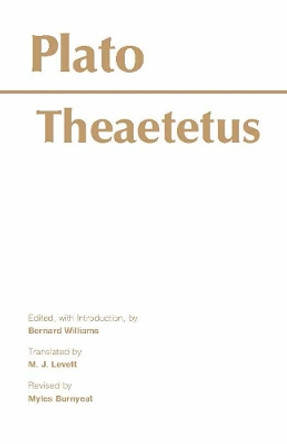Plato's Theaetetus is an acknowledged masterpiece, and among the most influential texts in the history of epistemology. Since antiquity it has been debated whether this dialogue was written by Plato to support his familiar metaphysical doctrines, or represents a self-distancing from these. David Sedley's book offers a via media, founded on a radical separation of the author, Plato, from his main speaker, Socrates. The dialogue, it is argued, is addressed to readers familiar with Plato's mature doctrines, and sets out to show how these doctrines, far from being an abandonment of his Socratic heritage, are its natural outcome. The Socrates portrayed here is the same Socrates as already portrayed in Plato's early dialogues. While not a Platonist, he is exhibited - to put it in terms of an image made famous by this dialogue - as having been Platonism's midwife. In a comprehensive rereading of the text, Sedley tracks the ways in which Socrates is shown unwittingly preparing the ground for Plato's mature doctrines, and reinterprets the dialogue's individual arguments from this perspective. The book is addressed to all readers interested in Plato, and does not require knowledge of Greek.
ReviewsReview from previous edition elegant and engaging, a refreshing reconsideration of the relation of Plato to Socrates. . . . The Midwife of Platonism is an enjoyable book to read, which I recommend to anyone with an interest in the Theaetetus and in the perennial question of Socrates. This slim volume, written in a modest and accessible style, aims in its own quiet way to overturn an influential thesis about Platos development. * Notre Dame Philosophical Reviews *
David Sedley is one of my favourite philosophical authors. Everything he writes is fresh, bold, interesting, provocative, sensitive, sympathetic, and a delight to read. He often makes interesting use of his considerable knowledge of the middle platonists. * Gail Fine, The Philosophical Quarterly *
Book InformationISBN 9780199204144
Author David SedleyFormat Paperback
Page Count 212
Imprint Oxford University PressPublisher Oxford University Press
Weight(grams) 175g
Dimensions(mm) 215mm * 138mm * 12mm










